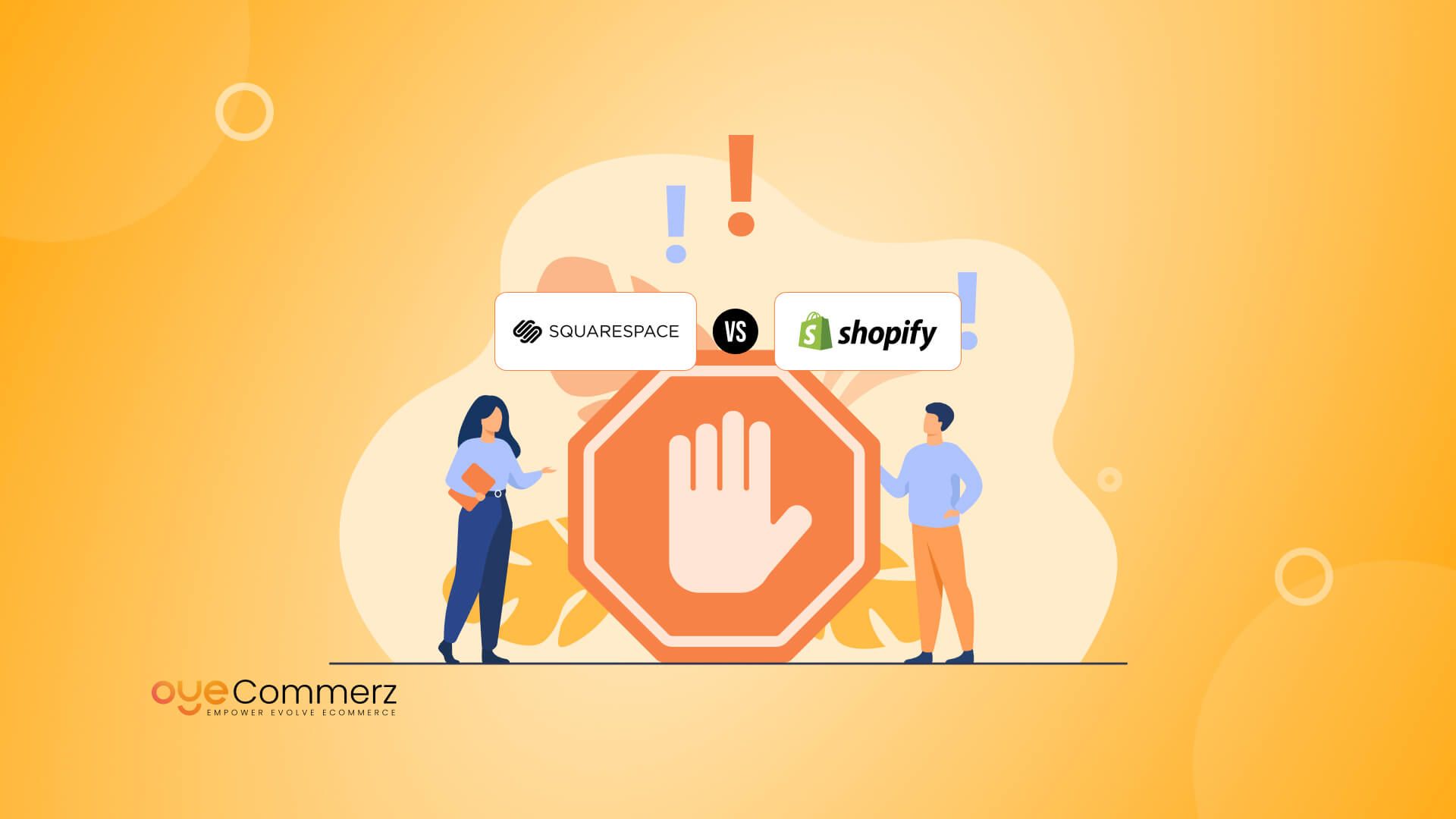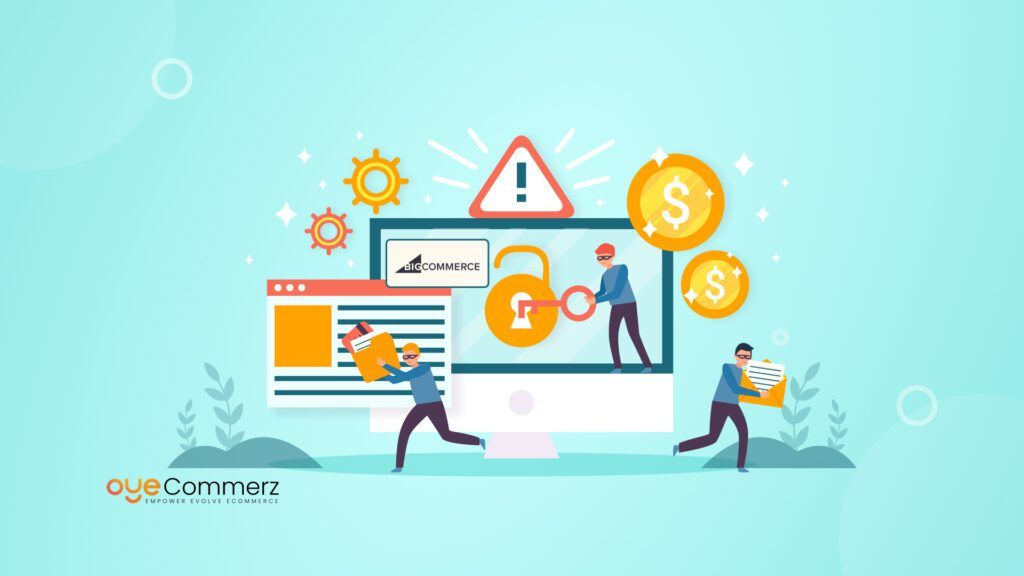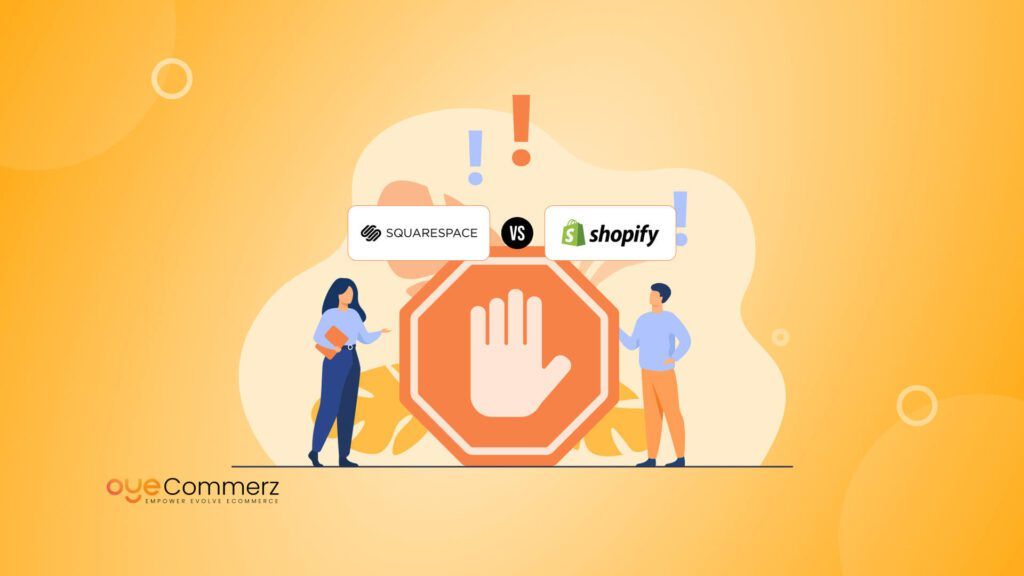Is your Squarespace store holding you back from growing your business? If you’ve struggled to integrate the right tools or scale operations, you’re not alone. A staggering 78% of growing eCommerce businesses say that access to flexible integrations is key to their success.
For existing Squarespace business owners, this might feel frustrating—especially when you hit those dreaded integration roadblocks. That’s where Shopify’s ecosystem vs. Squarespace comes into play. While Squarespace is excellent for beginners, its limitations become clear as your store expands. On the other hand, Shopify provides a vast, customizable ecosystem built to scale seamlessly with your business needs.
In this blog, we’ll explore Squarespace’s integration limits and compare them to Shopify’s robust ecosystem. Whether you’re already considering migrating to Shopify from Squarespace or simply exploring your options, this guide will give you clear insights to make an informed decision.
Let’s dive into the eCommerce landscape, understand why integrations matter for growth, and find out which platform truly supports your business ambitions.
Table of Contents
ToggleWhat are Integrations in an eCommerce Platform?
Let’s break it down—integrations are like the secret sauce that makes an eCommerce store run smoothly. Think of them as the bridges that connect your online store with other tools and apps you need to succeed. From processing payments to managing inventory, integrations allow different systems to “talk” to each other and work in sync.
For example, if you use a payment gateway like PayPal, a CRM to manage customer relationships, or Google Analytics to track website performance—these tools connect with your eCommerce platform through integrations. Instead of juggling everything manually, integrations automate tasks, saving you time and reducing the risk of human error.
Now, why does this matter for growing businesses? Simple: as your store expands, so do your needs. You might want to offer advanced shipping options, send automated emails to customers, or sync orders with your accounting software. Without integrations, scaling becomes a headache because you’ll hit limits on what your store can do.
For modern entrepreneurs—especially Gen Z business owners—time is money, and flexibility is everything. Integrations give you the power to create a smooth, personalized experience for your customers while keeping your operations streamlined.
The bottom line? Whether you’re automating workflows, enhancing customer experiences, or tracking performance, integrations are essential for taking your eCommerce business to the next level. If you’re stuck on a platform with limited integrations, you’re limiting your store’s growth potential.
Understanding Squarespace’s Integration Limits
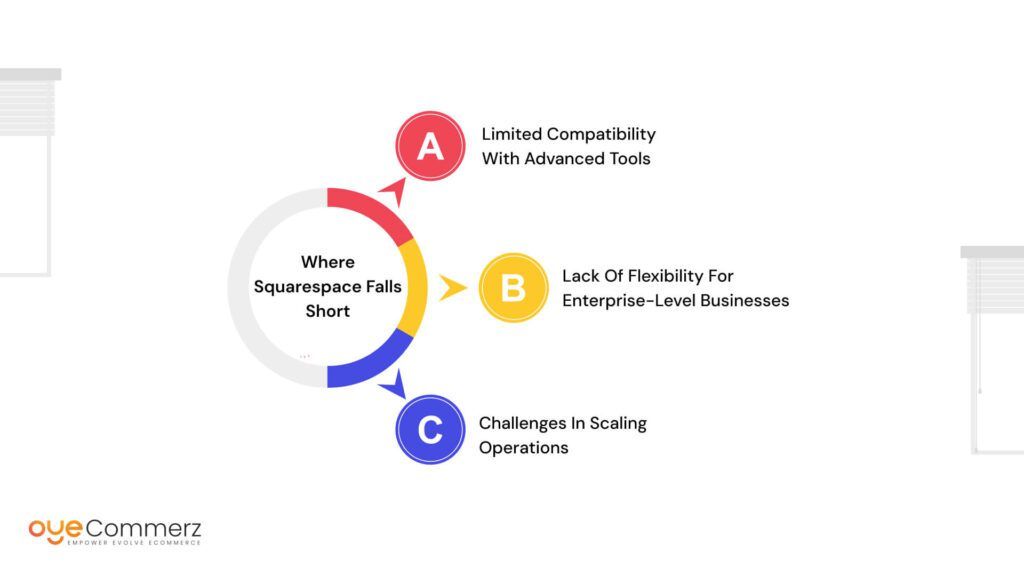
Squarespace is often praised for its simplicity and sleek design, making it a popular choice for small businesses and beginners. It comes with a handful of native integrations and built-in tools for marketing, shipping, and payments. For businesses just starting out, this might seem enough to get the ball rolling.
Squarespace’s native integrations include essentials like PayPal, Stripe, Mailchimp, and basic analytics tools. The platform also offers built-in features such as email campaigns, basic inventory management, and shipping options through carriers like UPS and FedEx. These tools are user-friendly and easy to set up, which is great—until your business starts to grow.
Where Squarespace Falls Short
The limitations start to show when your business outgrows the basics. As you scale, you’ll realize that Squarespace’s ecosystem is restrictive compared to platforms like Shopify. Here’s where it struggles:
- Limited Compatibility with Advanced Tools
- Squarespace lacks support for advanced tools like ERP (Enterprise Resource Planning), PIM (Product Information Management), or specialized shipping solutions.
- If you need to connect a complex inventory system or use high-end shipping integrations, you’re out of luck.
- Lack of Flexibility for Enterprise-Level Businesses
- Squarespace isn’t built for large, high-volume stores. While the platform is great for showcasing products, it can’t keep up with the needs of enterprise-level businesses.
- Limited API access means you can’t fully customize workflows or integrate third-party tools that support advanced operations.
- Challenges in Scaling Operations
- Growing businesses often hit a ceiling with Squarespace due to its restricted APIs and lack of custom integration support. This creates hurdles when you want to automate tasks or optimize complex systems.
- It becomes harder to scale without investing in manual processes or external workarounds—neither of which are ideal.
Example Scenarios of Limitations
Let’s look at how these limitations play out in real-world scenarios:
- Integrating Advanced CRMs
Imagine your business needs a powerful CRM tool like HubSpot, Salesforce, or Zoho to manage leads and nurture customer relationships. While Shopify supports direct integration with these tools, Squarespace doesn’t offer this flexibility. You’ll have to rely on limited workarounds, which aren’t as reliable or efficient. - Customizing Checkout Experiences
For a growing store, a smooth, customized checkout process can make or break the customer experience. Platforms like Shopify allow you to tweak your checkout flow with advanced tools, upsells, and third-party payment solutions. Squarespace, on the other hand, offers a standard checkout process with minimal customization options. This can lead to higher cart abandonment rates and fewer conversions. - Connecting ERP and PIM Systems
Scaling businesses often require ERP or PIM systems to streamline inventory, product management, and backend operations. Squarespace’s lack of compatibility with these systems means you’ll struggle to automate workflows, which slows down operations and impacts growth.
Exploring Shopify’s Ecosystem: A Complete Solution for Businesses
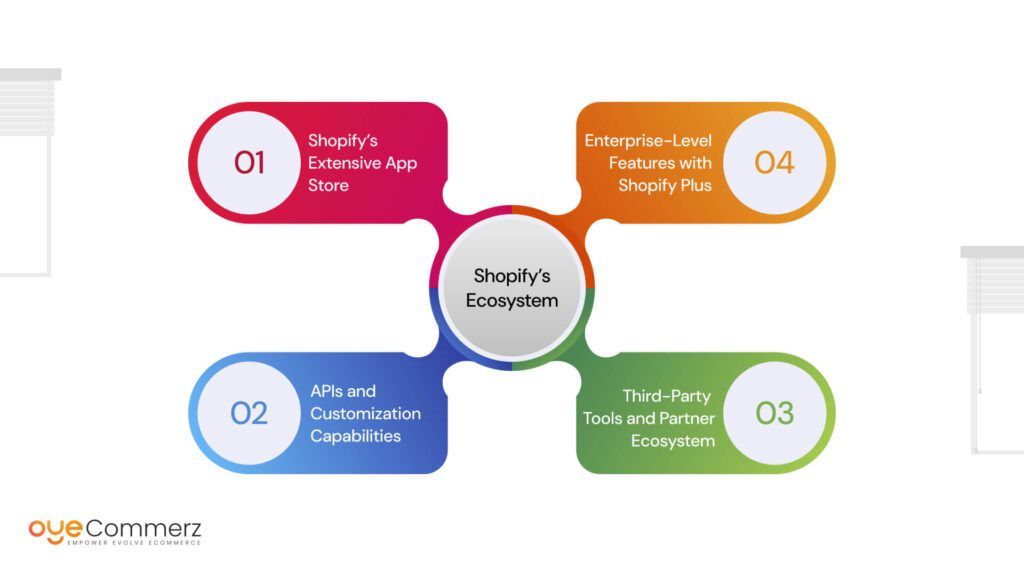
When it comes to building and scaling an eCommerce store, Shopify stands out as a platform that offers flexibility, innovation, and a rich ecosystem. Unlike Squarespace, Shopify isn’t just a website builder—it’s a powerful business tool designed to help brands grow at every stage. Whether you’re a small startup or a large enterprise, Shopify’s robust ecosystem provides everything you need to streamline operations, improve customer experiences, and scale without limitations.
Let’s break down what makes Shopify’s ecosystem a game-changer for businesses.
Shopify’s Extensive App Store: 8,000+ Ways to Grow Your Business
One of Shopify’s biggest strengths is its App Store, which features over 8,000 apps and integrations across every business category you can think of—sales, marketing, inventory management, customer support, logistics, and more.
For modern entrepreneurs, this means you can pick and choose tools that align with your business goals. Need to run personalized email campaigns? Apps like Klaviyo and Omnisend have you covered. Want to optimize your SEO? Tools like SEO Manager can make a difference. From automating abandoned cart recovery to streamlining shipping, Shopify’s App Store ensures your store runs like a well-oiled machine.
What makes this so valuable is the freedom to customize your store. Instead of relying on basic, built-in tools like Squarespace offers, Shopify gives you access to specialized apps that deliver real results. For businesses aiming to scale, this flexibility is a game-changer.
APIs and Customization Capabilities
While Shopify’s App Store offers plug-and-play solutions, its API capabilities give developers and businesses even more room to innovate. Shopify’s open API allows you to integrate third-party tools, build custom solutions, and tailor your store to meet unique business requirements.
For example:
- ERP Integration: Connect Enterprise Resource Planning (ERP) systems like NetSuite or SAP to streamline inventory, orders, and accounting.
- PIM Systems: Integrate Product Information Management (PIM) tools to handle complex product catalogs across multiple channels.
- Advanced Shipping Solutions: Shopify supports shipping apps that allow you to set dynamic rates, manage multiple carriers, and offer seamless order fulfillment.
- Automation Tools: Platforms like Zapier or Shopify Flow (exclusive to Shopify Plus) enable automation across your workflows, saving you hours of manual effort.
The beauty of Shopify’s flexible API is that it allows businesses of all sizes to think big. Whether you’re running a small operation or scaling to enterprise levels, Shopify’s customization options give you the tools to optimize performance at every step.
Third-Party Tools and Partner Ecosystem
In addition to the App Store and API, Shopify has built a robust partner ecosystem that connects you to thousands of trusted developers, agencies, and third-party solutions. This means you don’t have to navigate growth alone.
For example:
- Need help with marketing or SEO? Shopify partners specialize in everything from PPC campaigns to advanced optimization strategies.
- Want a custom Shopify app or theme? Developers in the Shopify ecosystem can build tailor-made solutions for your business.
- Looking to integrate accounting, CRMs, or advanced analytics? Shopify seamlessly connects with tools like QuickBooks, Salesforce, and Google Analytics.
This partner network is a huge advantage for businesses that need expert support to scale faster. Instead of being stuck with limited built-in options, Shopify empowers you to collaborate with specialists who can help you reach your goals.
Enterprise-Level Features with Shopify Plus
For businesses looking to scale to new heights, Shopify Plus takes things to the next level. Designed for large, enterprise-level businesses, Shopify Plus offers advanced features that Squarespace simply can’t match:
- Advanced Customization:
Shopify Plus gives you full control over your store’s design, checkout process, and workflows. You can customize the customer experience to boost conversions, improve retention, and align with your brand identity. - Support for High-Volume Transactions:
Shopify Plus is built for businesses handling high traffic and sales volumes. With advanced infrastructure and reliable performance, you’ll never have to worry about crashes or slow load times during peak shopping seasons. - Scalability:
Whether you’re expanding into new markets, launching additional storefronts, or managing complex operations, Shopify Plus is designed to scale with your growth. It’s a future-proof solution for businesses that need flexibility and power. - Automation Tools:
Shopify Flow lets you automate repetitive tasks like order tagging, inventory updates, and customer segmentation, saving you valuable time and resources.
Why Shopify’s Ecosystem Stands Out
Shopify’s ecosystem isn’t just about offering more tools—it’s about giving businesses the flexibility, power, and scalability they need to thrive. Compared to Squarespace, Shopify goes beyond basic integrations by providing:
- Endless app options for specialized tools.
- Custom APIs for advanced integrations.
- A strong partner network for expert support.
- Enterprise-grade features with Shopify Plus.
For Gen Z entrepreneurs and modern business owners, this means you can build a store that grows with you—without hitting frustrating limitations.
Comparison Table: Squarespace vs. Shopify Integrations
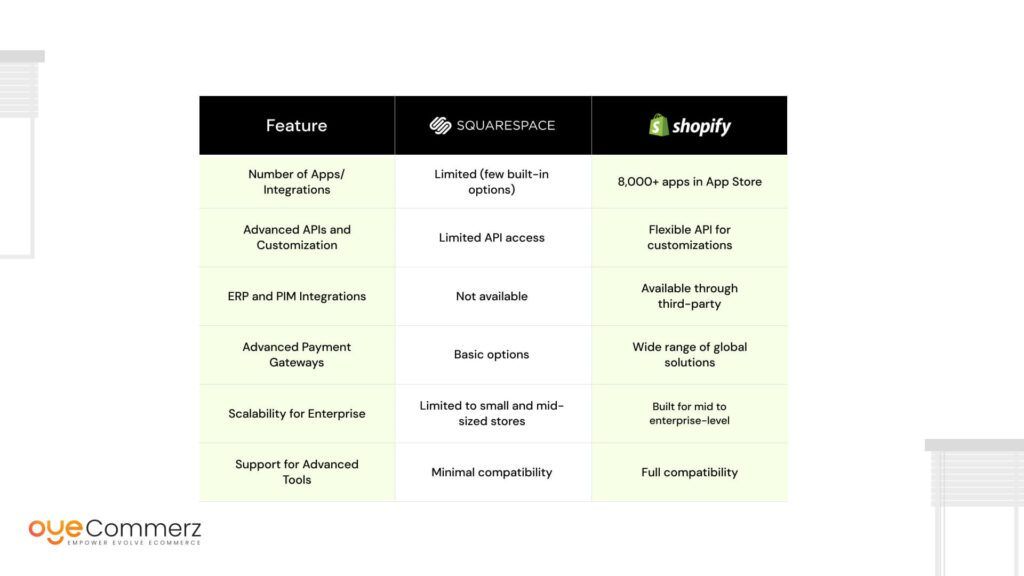
Key Benefits of Migrating to Shopify
If you’re a growing eCommerce business currently on Squarespace, you might already feel the pinch of its limitations—especially when it comes to integrations, scalability, and custom functionality. Migrating to Shopify isn’t just about switching platforms; it’s about unlocking the tools, flexibility, and power your business needs to thrive. Let’s explore the key benefits that make Shopify the go-to platform for modern entrepreneurs looking to scale smarter and faster.
1. Seamless Access to Advanced Third-Party Tools
Shopify’s extensive App Store gives you instant access to over 8,000 third-party tools across categories like marketing, sales, inventory, logistics, and analytics. Unlike Squarespace, where native integrations are limited to a few basics like email and shipping, Shopify connects your business to powerful tools that truly elevate your operations.
For instance:
- Use Klaviyo or Mailchimp to build targeted email campaigns.
- Implement advanced SEO tools like SEO Manager or Yoast to boost organic visibility.
- Optimize shipping with apps like ShipStation or Easyship.
This access to specialized tools means you can build an eCommerce tech stack tailored to your unique business goals, leaving behind the “one-size-fits-all” limitations of Squarespace.
2. Ability to Customize and Scale eCommerce Operations
Customization is at the heart of Shopify. Whether you want to tweak your store’s design, automate workflows, or integrate advanced tools, Shopify makes it easy to adapt to your business needs.
Here’s what customization looks like:
- Themes: Choose from hundreds of responsive themes and personalize every detail to align with your brand.
- Checkout: Customize your checkout process to reduce cart abandonment and increase conversions.
- Workflows: Automate repetitive tasks like inventory updates, tagging, or customer follow-ups with tools like Shopify Flow.
On Shopify, you’re not just building a store—you’re creating a flexible, scalable system that grows alongside your business. Whether you’re managing 100 products or 100,000, Shopify can handle it effortlessly.
3. API-Driven Integrations for a Robust Backend
For businesses that need deeper integrations, Shopify’s API-driven capabilities are a game-changer. With open APIs, Shopify allows you to integrate enterprise tools, custom apps, and complex backend systems like:
- ERP (Enterprise Resource Planning) tools such as NetSuite or SAP for seamless inventory and accounting management.
- PIM (Product Information Management) systems for handling large and complex product catalogs.
- Advanced CRMs like Salesforce for better customer data management.
With Shopify, you’re not limited to pre-built integrations. Developers can use APIs to build custom connections that automate operations and simplify your workflows—something Squarespace struggles to offer for growing businesses.
4. Access to Shopify Plus for Enterprise-Level Features
If you’re aiming to grow into a large-scale, enterprise-level business, Shopify Plus is your golden ticket. Shopify Plus delivers advanced features specifically designed for high-growth brands:
- High-volume transaction support for seamless shopping during peak sales.
- Customization of every layer, including checkout pages and workflows.
- Shopify Flow for automating processes at scale.
- International selling with multiple storefronts and multi-currency support.
Squarespace doesn’t offer anything remotely close to Shopify Plus in terms of enterprise-level scalability, which makes Shopify the preferred choice for ambitious entrepreneurs.
5. A Thriving Ecosystem to Meet Your Unique Needs
Shopify isn’t just a platform—it’s a thriving ecosystem of apps, developers, agencies, and experts ready to help you succeed. You’re never alone on your journey. Whether you need to integrate new tools, scale internationally, or optimize your store for higher sales, Shopify’s partner ecosystem has your back.
For example:
- Hire certified Shopify experts to build custom apps, themes, or integrations.
- Work with marketing partners to improve your PPC ads, SEO, or email campaigns.
- Access logistics and fulfillment tools to streamline operations.
This interconnected ecosystem is what sets Shopify apart from Squarespace, which lacks the depth of resources and partnerships needed for businesses to scale quickly.
Why Choose Oyecommerz for Migrating to Shopify?
At Oyecommerz, we specialize in seamless Shopify migrations tailored for US businesses of all sizes. Our services include complete data migration of orders, products, and customers, integration of third-party apps, and custom API development to ensure your new Shopify store is ready to scale. We don’t stop there—our post-migration support guarantees a smooth transition with zero downtime or data loss. With our expertise and proven track record, we make migrating to Shopify from Squarespace simple and stress-free.
Ready to elevate your eCommerce store? Contact Oyecommerz today for a seamless move to Shopify’s powerful ecosystem!
Contact to Migrate your Squarspace Website to Shopify Now
Conclusion
Integrations are the backbone of a successful eCommerce business, allowing you to streamline operations, automate workflows, and scale seamlessly. As your business grows, having the right integrations is essential for staying competitive. Shopify’s ecosystem stands out as the clear winner for flexibility and scalability, offering a vast range of third-party apps, powerful APIs, and enterprise-level features like Shopify Plus. Whether you’re looking to enhance your store’s functionality, streamline processes, or expand globally, Shopify’s ecosystem has everything you need to succeed.
Migrating to Shopify from Squarespace is more than just a platform switch; it’s a step toward unlocking unlimited growth potential. Ready to take your eCommerce business to the next level? Make the smart move and migrate to Shopify today!

